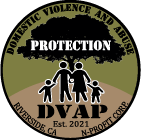Domestic violence is a pervasive issue that transcends age, race, and socio-economic status. It often remains hidden behind closed doors, with victims sometimes too afraid or ashamed to seek help. For friends and family, recognizing the signs of domestic violence can be the first step in providing support and intervention for loved ones who may be suffering in silence.
1. Physical Signs of Injury
Visible physical injuries are the most apparent signs of domestic violence. These include bruises, cuts, black eyes, and broken bones. However, it’s important to note that many victims may attempt to hide these injuries under clothing or makeup, or explain them away as accidents.
2. Changes in Behavior or Personality
Often, victims of domestic violence exhibit significant changes in behavior or personality. Someone who was once outgoing and vibrant may become withdrawn and quiet. Fearfulness, anxiety, and depression are common, and you may notice your loved one is constantly on edge, especially in the presence of their partner.
3. Isolation from Friends and Family
Abusers frequently attempt to isolate their victims from close friends and family to gain control. If your loved one suddenly becomes less communicative, cancels plans regularly, or seems to have fallen off the social grid without explanation, it could be a cause for concern.
4. Excessive Communication from Their Partner
If you notice that your friend or family member’s partner constantly calls, texts, or demands to know where they are and who they’re with, this can be a sign of controlling behavior, which is a form of domestic violence.
5. Financial Dependence or Strain
Financial abuse is a common tactic used by abusers to gain power over their victims, making it difficult for them to leave the relationship. Signs include sudden loss of access to bank accounts, being given an allowance, or not having money for basic necessities despite income.
6. Making Excuses for Their Partner’s Behavior
Victims of domestic violence might often defend their abuser’s actions, make excuses for their behavior, or blame themselves. This rationalization can be a coping mechanism to deal with abuse.
7. Deteriorating Physical or Emotional Health
Ongoing domestic violence can lead to deteriorating physical health due to injuries or stress-related conditions. Mental health can suffer greatly, too, with increased risks of depression, anxiety, and PTSD.
How to Support Someone You Suspect Is Being Abused
Recognizing the signs is just the first step. Offering support involves listening without judgement, affirming their experiences, providing information on resources like local shelters and hotlines, and encouraging them to seek professional help. It’s crucial to remember that the decision to leave a violent situation is complex and dangerous; therefore, patience and understanding are essential.
Domestic violence is a deeply challenging situation, but awareness and support from friends and family can provide hope and a path forward for those affected. Remember, advocating against domestic violence starts with recognizing the signs and taking action to support those in need.
Disclaimer: This blog post provides general information about domestic abuse. It does not provide legal advice. Victims should consult with a legal professional for advice related to their specific situation.
Are You Experiencing Domestic Violence or Abuse? DVAP Is Here To Help
Domestic Violence and Abuse Protection, Inc. is a non-profit organization committed to protecting the victims of domestic abuse. When restraining orders are not enough, we are there to provide the determined protection you deserve. We are located at 3900 Orange St. Riverside, CA. Call us at (951)-275 8301 (24 hours). Alternatively, you can email us at admin@dvapriverside.org






